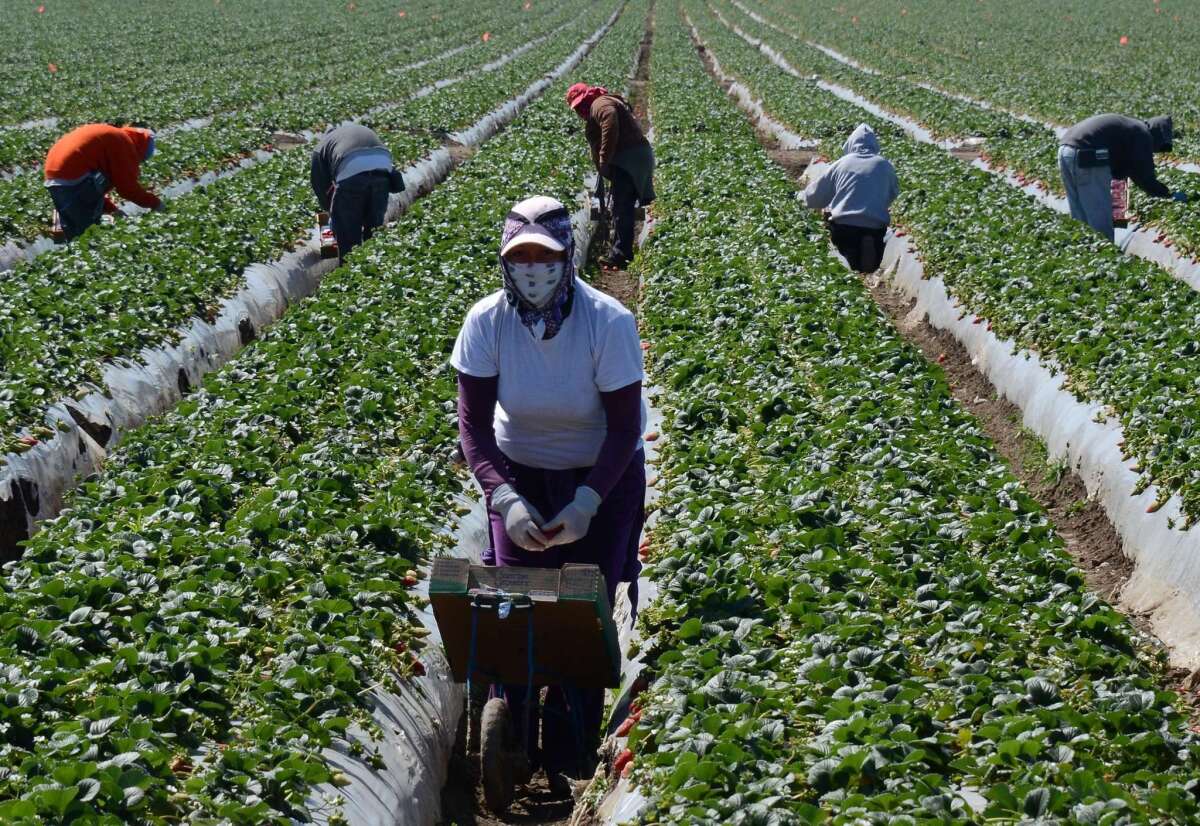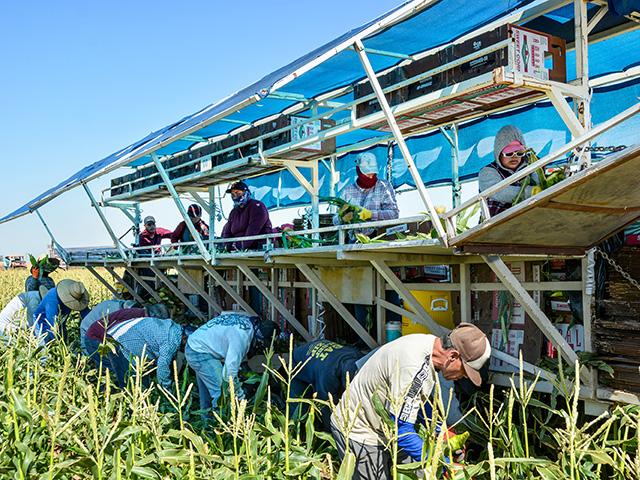The Dignity Act of 2025: A Bipartisan Attempt at Immigration Reform
The Dignity Act of 2025 (H.R. 4393), introduced on July 15, 2025, by Representatives María Elvira Salazar (R-FL) and Veronica Escobar (D-TX), represents one of the most comprehensive bipartisan efforts in recent years to overhaul U.S. immigration policy. Aimed at balancing border security, legal status for undocumented immigrants, and modernization of immigration pathways, the bill seeks to bridge deep partisan divides on an issue that has remained unresolved for decades.
Current Legislative Status
-
Introduced and Referred to Committees: The bill was formally introduced in the House of Representatives and has been referred to several key committees, including Judiciary, Homeland Security, and Ways and Means. As of July 22, 2025, no subcommittee hearings have been scheduled.
-
Bipartisan Cosponsorship: With 20 cosponsors evenly split between Republicans and Democrats, the bill demonstrates an unusually strong bipartisan foundation. It has also earned a formal endorsement from the influential Problem Solvers Caucus, which comprises over 60 centrist members of Congress and plays a pivotal role in advancing cross-party legislation.
Source: Salazar.house.gov
Source: IIUSA -
Legislative History: The bill is a refined successor to the Dignity Act of 2023 (H.R. 3599), which stalled in committee and expired at the close of the 118th Congress. The 2025 version removes the previously controversial Redemption Program—a pathway to citizenship—and instead focuses on a renewable legal status known as “Dignity Status.”
Source: American Immigration Council
Key Provisions of the Dignity Act of 2025
-
Border Security Enhancements
-
Mandatory implementation of E-Verify nationwide.
-
Construction and modernization of border infrastructure and ports of entry.
-
Increased criminal penalties for illegal border crossings and human smuggling operations.
-
-
Dignity Program
-
Offers a seven-year renewable legal status to undocumented immigrants who entered the U.S. before December 31, 2020.
-
Eligibility requires:
-
A clean criminal record and background checks.
-
Payment of a $7,000 fine over seven years.
-
Proof of employment, tax payments, and learning English.
-
-
Grants work and travel authorization but does not provide a direct path to citizenship.
-
-
Protections for Dreamers (DACA Recipients)
-
Establishes a clear path to permanent legal residency for individuals brought to the U.S. as children who meet specific education, employment, or military service criteria.
-
-
American Worker Fund
-
Funded through the Dignity Program’s penalty fees.
-
Aims to reskill and upskill American workers displaced or affected by immigration and automation.
-
-
Asylum and Immigration Processing Reform
-
Creates three humanitarian processing campuses along the U.S.-Mexico border.
-
Mandates asylum adjudications to be completed within 60 days.
-
Proposes modernization of the immigration court system and digital processing to reduce visa backlogs.
Source: National Immigration Forum
-
Political Outlook and Path to Passage
No Defined Timeline
The bill is in its early legislative phase. It must pass through subcommittee and full committee deliberations before being brought to the House floor for a vote. Given the packed legislative calendar and competing priorities—including budget appropriations and defense authorizations—the timeline remains uncertain.
Barriers to Passage
-
Polarized Political Climate: Despite bipartisan backing, immigration reform remains a deeply divisive issue. Posts on social media platforms like X (formerly Twitter) indicate persistent skepticism, especially from conservatives who perceive the Dignity Program as a form of "amnesty."
Source: American Immigration Council -
House GOP Resistance: Although introduced by a Republican, the bill faces intra-party resistance. Several House Republicans, especially from the Freedom Caucus, have criticized the proposal, arguing it does not go far enough in deterrence and border enforcement.
-
Election-Year Sensitivities: With the 2026 midterm elections approaching, lawmakers may be reluctant to take bold stances on immigration. While some may view this as a window for action, others will prefer to avoid controversy during campaign season.
Reasons for Optimism
-
The Problem Solvers Caucus endorsement signals centrist momentum.
-
The exclusion of a citizenship path may ease some conservative opposition.
-
Broad-based support from immigrant advocacy groups, business leaders, and moderate lawmakers could help build a coalition in both chambers.
Source: IIUSA
Conclusion: Hopeful, But Far From Certain
As of July 22, 2025, the Dignity Act of 2025 remains in committee, with no scheduled hearings or votes. While the bill marks a serious, bipartisan effort to resolve long-standing immigration challenges, its future is uncertain. The coming months will be crucial in determining whether the bill advances—or becomes another casualty of congressional gridlock.
For ongoing updates, stakeholders and interested citizens can track the bill’s progress on Congress.gov.
डिग्निटी अधिनियम 2025: आव्रजन सुधार की द्विदलीय पहल
डिग्निटी अधिनियम 2025 (H.R. 4393), जिसे 15 जुलाई 2025 को प्रतिनिधि मारिया एलवीरा सालाजार (रिपब्लिकन-फ्लोरिडा) और वेरोनिका एस्कोबार (डेमोक्रेट-टेक्सास) ने प्रस्तुत किया, अमेरिका की आव्रजन नीति को सुधारने के लिए हाल के वर्षों की सबसे व्यापक द्विदलीय कोशिशों में से एक है। यह विधेयक सीमा सुरक्षा, अवैध अप्रवासियों को वैध दर्जा, और आव्रजन प्रणाली के आधुनिकीकरण पर संतुलन बनाने की कोशिश करता है—एक ऐसा मुद्दा जो दशकों से राजनीतिक गतिरोध में फंसा हुआ है।
वर्तमान विधायी स्थिति
-
प्रस्ताव और समिति में संदर्भित: यह विधेयक अमेरिकी प्रतिनिधि सभा में प्रस्तुत किया गया और इसे न्यायिक समिति, गृह सुरक्षा समिति, और वित्त और साधन समिति सहित कई प्रमुख समितियों को भेजा गया है। 22 जुलाई 2025 तक कोई उप-समिति सुनवाई निर्धारित नहीं हुई है।
-
द्विदलीय समर्थन: इस विधेयक को 20 सह-प्रायोजक मिले हैं (10 रिपब्लिकन और 10 डेमोक्रेट), जो असाधारण द्विदलीय समर्थन को दर्शाता है। इसे प्रॉब्लम सॉल्वर कॉकस का समर्थन भी मिला है, जिसमें कांग्रेस के 60 से अधिक मध्यमार्गी सदस्य हैं। यह समूह अक्सर द्विदलीय कानूनों को आगे बढ़ाने में निर्णायक भूमिका निभाता है।
स्रोत: Salazar.house.gov
स्रोत: IIUSA -
विधायी पृष्ठभूमि: यह विधेयक डिग्निटी अधिनियम 2023 (H.R. 3599) का संशोधित संस्करण है, जो समिति में ही अटक गया था और 118वीं कांग्रेस के अंत (3 जनवरी 2025) तक समाप्त हो गया। 2025 संस्करण में रिडेम्प्शन प्रोग्राम (नागरिकता की राह) को हटा दिया गया है और इसकी जगह “डिग्निटी स्टेटस” नामक एक नवीकरणीय कानूनी दर्जा प्रस्तावित किया गया है।
स्रोत: American Immigration Council
डिग्निटी अधिनियम 2025 के प्रमुख प्रावधान
-
सीमा सुरक्षा का सुदृढ़ीकरण
-
पूरे देश में E-Verify प्रणाली को अनिवार्य किया जाएगा।
-
सीमा अवसंरचना और प्रवेश बिंदुओं का आधुनिकीकरण किया जाएगा।
-
अवैध सीमा पार करने और मानव तस्करी के लिए दंड बढ़ाए जाएंगे।
-
-
डिग्निटी प्रोग्राम
-
उन अवैध अप्रवासियों के लिए सात वर्ष का नवीकरणीय कानूनी दर्जा जो 31 दिसंबर 2020 से पहले अमेरिका में आए थे।
-
पात्रता के लिए आवश्यकताएँ:
-
आपराधिक रिकॉर्ड नहीं होना और पृष्ठभूमि जांच पास करना।
-
$7,000 का जुर्माना सात वर्षों में भुगतान करना।
-
रोजगार, कर भुगतान, और अंग्रेज़ी सीखने का प्रमाण देना।
-
-
इससे काम करने और यात्रा करने की अनुमति मिलेगी, लेकिन नागरिकता का कोई सीधा रास्ता नहीं दिया गया है।
-
-
ड्रीमर संरक्षण (DACA प्राप्तकर्ता)
-
अमेरिका में बचपन में आए व्यक्तियों को स्थायी निवास के लिए स्पष्ट राह प्रदान की जाएगी, यदि वे शिक्षा, रोजगार या सैन्य सेवा की शर्तें पूरी करते हैं।
-
-
अमेरिकन वर्कर फंड
-
डिग्निटी प्रोग्राम के शुल्क से वित्त पोषित।
-
इसका उद्देश्य उन अमेरिकी श्रमिकों को पुनः प्रशिक्षण देना है जो आव्रजन या स्वचालन से प्रभावित हुए हैं।
-
-
असाइलम और आव्रजन प्रक्रिया में सुधार
-
तीन मानवीय प्रसंस्करण केंद्र अमेरिका-मेक्सिको सीमा पर स्थापित किए जाएंगे।
-
60 दिनों के भीतर शरण आवेदन निपटाए जाएंगे।
-
वीज़ा बैकलॉग को कम करने के लिए न्यायिक प्रणाली और डिजिटल प्रक्रियाओं का आधुनिकीकरण किया जाएगा।
स्रोत: National Immigration Forum
-
राजनीतिक परिदृश्य और पारित होने की संभावना
कोई निर्धारित समयसीमा नहीं
यह विधेयक अभी प्रारंभिक चरण में है। इसे उप-समिति और पूर्ण समिति दोनों की समीक्षा से गुजरना होगा, फिर प्रतिनिधि सभा में मतदान के लिए प्रस्तुत किया जाएगा। चूंकि कांग्रेस के पास अन्य प्रमुख प्राथमिकताएं हैं (जैसे बजट और रक्षा कानून), इसलिए समयसीमा अनिश्चित है।
पारित होने में प्रमुख बाधाएँ
-
ध्रुवीकृत राजनीतिक माहौल: सामाजिक मीडिया (जैसे X) पर प्रतिक्रियाओं से पता चलता है कि कई लोग, विशेषकर रिपब्लिकन मतदाता, इस विधेयक को “माफी” के रूप में देखते हैं और इससे सहमत नहीं हैं।
स्रोत: American Immigration Council -
हाउस में GOP का विरोध: भले ही यह विधेयक एक रिपब्लिकन द्वारा प्रस्तुत किया गया है, लेकिन रिपब्लिकन पार्टी के भीतर से ही विरोध सामने आ रहा है, विशेष रूप से फ्रीडम कॉकस जैसे गुटों से जो इसे बहुत उदार मानते हैं।
-
चुनावी वर्ष की संवेदनशीलता: 2026 मध्यावधि चुनावों के मद्देनज़र कई सांसद विवादास्पद मुद्दों से बचना चाहेंगे, हालांकि कुछ इसे कार्रवाई का मौका भी मान सकते हैं।
आशावाद के कारण
-
प्रॉब्लम सॉल्वर कॉकस का समर्थन मध्य मार्ग की राजनीति को बल देता है।
-
नागरिकता की राह को हटाने से कुछ रूढ़िवादी चिंताओं को शमन मिल सकता है।
-
अप्रवासी अधिकार समूहों, व्यापारिक नेताओं और उदार सांसदों का व्यापक समर्थन एक मजबूत गठबंधन बना सकता है।
स्रोत: IIUSA
निष्कर्ष: आशा के साथ लेकिन अनिश्चितता बनी हुई है
22 जुलाई 2025 तक, डिग्निटी अधिनियम 2025 अभी समिति स्तर पर है और इसकी कोई सुनवाई या मतदान निर्धारित नहीं है। यह विधेयक निश्चित रूप से आव्रजन सुधार के लिए एक गंभीर द्विदलीय प्रयास है, लेकिन इसकी सफलता राजनीतिक विभाजन और जटिलताओं पर निर्भर करती है। आगे की प्रगति इस बात पर निर्भर करेगी कि समिति की कार्रवाई कैसे होती है और कांग्रेस में व्यापक सहमति बनती है या नहीं।
विधेयक की स्थिति को देखने के लिए आप Congress.gov पर नियमित अपडेट प्राप्त कर सकते हैं।


